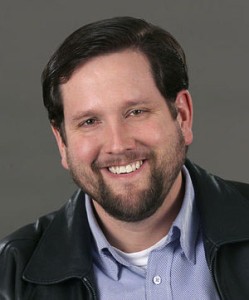
Washington Policy Center Communications Director David Boze addresses accusations made by the state Office of the Superintendent of Public Instruction
David Boze
Washington Policy Center
The last time the state Office of the Superintendent of Public Instruction (OSPI) called WPC’s Center for Education Director Liv Finne (and WPC) “dishonest”, it was because Liv posted a blog claiming Superintendent Reykdal said he’s “trying to cancel [the] state assessment of student learning.” OSPI insisted they deserved a retraction despite Superintendent Reykdal giving a TVW-televised presentation to the state ed board in which he said he was seeking to “exit” the state assessment of student learning.

OSPI charged that viewing more of the video in context would “clearly” show Liv had cherry picked a moment to dishonestly present a distorted meaning to Reykdal’s remark.
The personal smear of “dishonesty” was unbecoming a public office, and also, as the video showed, complete hogwash. At WPC, we take inaccuracy seriously, so I watched and re-watched the Superintendent’s remarks, transcribed them, and noted that the extended remarks further bolstered what Liv claimed in the original blog. Obviously, no retraction was given.
We also made it easy for people to see the full email exchange and the Superintendent’s original presentation. WPC posted an extended video of the speech so that people can watch what was said and decide for themselves who is being accurate. (Hint: It’s WPC) It should have sparked an apology for the personal smear at least, and if OSPI decided Superintendent Reykdal never intended what he actually said, they should have offered a clarification of their own, not an attack on the observer who took his words seriously.
Now, one month later, Liv’s latest study on student harms caused by the state’s COVID-related school closure policy has been released and OSPI’s response in the media was to relaunch the same old attacks on Liv, claiming her blog posts regularly “perpetuate factually inaccurate, grossly misleading, and blatantly political storylines.”
I isolated the attacks in the media report here:
- Riddled with factual inaccuracies
- Liv and WPC are ideologically committed to “expanding school privatization”
- WPC engages in ideological policy advocacy
- OSPI dismisses the learning loss study as one of many “blatantly political storylines”
Let’s see how they hold up. We’ll dispense with the politics first, and tackle the rest in reverse order.
1. OSPI dismisses the learning loss study as one of many “blatantly political storylines”
Criticism of any government policy can be dismissed as “political” simply because it deals with government. This is the verbal equivalent of a sleight of hand meant to distract from the actual subject (learning loss and other harms to students caused by school closures).
It’s not uncommon for people to confuse “political,” which Merriam-Webster defines as “relating to the government,” with “partisan,” showing allegiance to one party (like Democrats or Republicans) over the other. WPC has a self-identified free-market perspective, but not a partisan one (WPC has had former Democratic vice-presidential candidate Joe Lieberman keynote our annual dinner and former Democratic congresswoman Tulsi Gabbard is keynoting WPC’s Eastern Washington Annual Dinner this year.).
Furthermore, education reform is not a partisan issue. WPC’s last poll showed public support for school choice above 70 percent. A simple google search will reveal several other polling sources show broad support as well — Democrats, Republicans and Independents who support the expansion of choice in education. In fact, one of the reasons former Senator Joe Lieberman was invited to keynote WPC’s annual dinner was because of his support for expanded educational choice.
One might also ask OSPI why they feel it’s wrong to have “a storyline” examining the learning loss and social harms suffered by children due to covid-related school closures. Isn’t that a conversation worth public attention?
2. WPC engages in ideological policy advocacy
WPC self-describes as a free-market think tank. That means WPC believes the best policy ideas incorporate free-market principles. We also advocate policy. But OSPI advocates policy, and one could also assert OSPI engages in ideological policy advocacy. However, neither claim has ANYTHING to do with the actual subject at hand, which is learning loss and other harms kids in Washington suffered due to school closures. So again, it’s a distraction. Change the topic from what is being said to who is saying it.
3. OSPI asserts both Liv and WPC are ideologically committed to “expanding school privatization”
Not coincidentally, political opponents to educational reform often describe school choice this way, but here we’re supposed to accept that OSPI’s rhetoric in defense of the status-quo is not political or ideological, but those who disagree with them are. While expanding educational opportunities is an important debate to have, here it’s being used as a distraction meant to move the conversation away from the actual topic of the study, learning loss and social harms to kids during our state’s school closures.
4. Riddled with factual inaccuracies
Two examples were offered as evidence of Liv’s study being “riddled” with inaccuracies.
- Key Finding #1, “The governor’s decision to close public schools for nearly two years in response to COVID-19 significantly affected Washington’s 1.1 million public school students.” OSPI said that was false because “Gov. Inslee closed public school buildings March-June of 2020 not ‘nearly two years.’”
Parents across the state would likely be shocked by the defense that schools were closed only 4 months between 2020 and 2021. Nevertheless, let’s take a look.
Last month, OSPI was adamant that context was important. We agreed, the problem for OSPI was that added context contradicted the point the were trying to make. Thankfully, the opposite is true here.
OSPI claims Liv is inaccurate and “grossly misleading,” and “riddled with factual errors in part because of this key finding. But pages 4 through 8 of the study provide a timeline of “School Closure Emergency Orders” and key events, including the Governor’s June 11, 2020 suggested phased re-opening of K-12 schools, and the stipulations to the order for voluntary reopening June 2020.
Liv points out in the timeline (Fall 2020) that districts stay closed. In December 2020, the timeline notes Superintendent Reykdal told The Seattle Times that Washington students were receiving a “sh-tty” education right now, saying the mandatory remote instructional model “doesn’t work for a lot of kids.” (emphasis added)
Liv’s timeline notes that in February of 2021, Washington state is providing in-person instruction to only 19 percent of students. In mid-March of 2021, the Governor orders schools to provide 30 percent of average weekly instructional hours in person starting on April 19, 2021, and that in September 2021, public schools reopen to in-person learning, but are interrupted by frequent school closures in October and November of 2021 and teacher union activities sporadically close schools in January of 2022.
It’s clear the governor ordered them closed, then despite the June suggested phased re-opening proclamation, kept them closed. The governor declared a state of emergency giving himself broad powers (as of this writing, more than 900 days after he made that declaration, we are still in that state of emergency).
Due to the governor’s actions and inactions, schools were significantly closed overlapping two school years. Not counting the disruptions after the September 2021 re-opening to in-person instruction, March 2020 to September of 2021 is a year and half on the calendar and overlaps significantly with two school calendar years.
However much responsibility one wants to prescribe to the governor, given the context, the citations within, and the full description of the claim within the report and the impact on two school calendar years from the closures, Liv’s summary here seems fair and more accurate than a description depicting a closure of only a few months.
- OSPI objects to Key finding #8 “The 1.1 million students who attend public schools are being automatically promoted to the next grade.” In The Center Square report, OSPI asserts “students are not being ‘automatically promoted to the next grade’ and there is no citation showing where this claim is coming from.”
Last item first, there is no citation in the key findings because citations are in the main body of the study.
Liv mentions social promotion in the body of her study on pages 3, 16 and 17.
From page 16:
In April of 2020, State Superintendent Chris Reykdal prohibited teachers from assigning failing grades to students who failed to receive adequate instruction to meet state standards… Superintendent Reykdal also lowered high school graduation requirements. He canceled credit requirements for students graduating in 2020 and 2021.50 He has continued the low-standards policy for students in the graduating classes of 2022 and 2023 and 2024.
Liv’s claims are cited on the page.
Readers can read Liv’s pages for themselves (and her sources cited) to see if her characterization is fair. With the state’s dramatic drop in test scores with more than 50 percent of students failing to demonstrate the state-required mastery of Reading, and almost 70 percent failing to reach the required standard in math, OSPI could report on the number of students retained in their grades (if it’s on their site, I couldn’t find it).
David Boze is the communications director at the Washington Policy Center.
Also read:
- Opinion: Schools notifying parents about the kinds of care kids can decide on their own didn’t make itElizabeth New criticizes the removal of Amendment 1164 from current legislation, arguing it leaves parents uninformed about health care services accessed by their children through schools.
- Opinion: Off-road vehicles in the neighborhoodDoug Dahl responds to a resident’s concern about off-road vehicles on neighborhood streets, outlining the legal violations and safety risks involved.
- POLL: Is America more united or more divided than it was a decade ago?Clark County Today’s weekly poll asks: Is America more united or more divided today? The question comes after Stephen Davis brought a powerful message to Vancouver.
- Opinion: Revolution or revival?Nancy Churchill argues that Washington state is ground zero for a Marxist-style revolution but says a cultural revival is possible through personal responsibility and the America First movement.
- Letter: ‘It’s said sarcasm is the lowest form of wit’Amboy resident Thomas Schenk criticizes Olympia’s use of “emergency clauses” and other legislative tactics that limit public participation.










